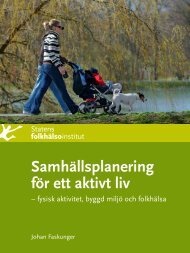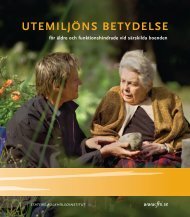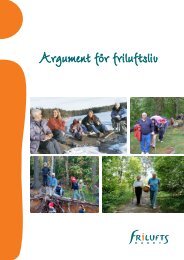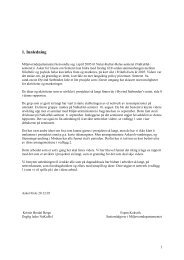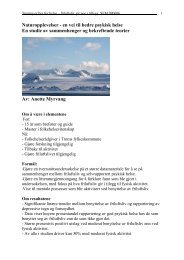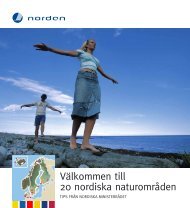Green Care: A Conceptual Framework - Frisk i naturen
Green Care: A Conceptual Framework - Frisk i naturen
Green Care: A Conceptual Framework - Frisk i naturen
You also want an ePaper? Increase the reach of your titles
YUMPU automatically turns print PDFs into web optimized ePapers that Google loves.
labour to help in the production of food. The production of food itself is<br />
also likely to have substantial psychological benefits for those members of<br />
the community involved in it. Such approaches represent the ‘greening of<br />
medical, psychiatric and social care’.<br />
8.3 Epilogue: the way forward<br />
Within this document, we as researchers and practitioners, have tried to<br />
paint as full a picture of green care as is possible. We have described its<br />
components and its links and interactions with other systems, processes,<br />
frameworks and theories. We have reiterated the need for more research,<br />
for more evidence of effectiveness and have discussed the difficulties that<br />
researchers face in this field. We see that there are both practical difficulties<br />
in conducting the studies and philosophical difficulties with regards both to<br />
the methodology and the perceived need for ‘hard’ evidence.<br />
At the outset we have made clear our position – that we believe that nature<br />
is a valuable asset within many different therapeutic contexts. It is not our<br />
task as researchers to set out to find the proof that green care works; but<br />
rather to further the understanding of how those interventions we call green<br />
care may indeed be beneficial; to whom they should be applied and in<br />
what context; and also under what circumstances it may be contraindicated<br />
or harmful. In all of the research on green care that we have examined,<br />
we have seen no reports of adverse reactions or of any negative views.<br />
Understanding the thoughts of those who say they do not like gardening or<br />
being outdoors or touching animals may well help us to include those who<br />
feel excluded from green care or even disconnected from nature itself.<br />
There is now an overwhelming body of evidence that shows that the<br />
natural environment is beneficial to health and well-being. It is clear that<br />
it is valued by those who seek their recreation and leisure in the outdoors<br />
and by those who are participants of green care programmes. We can<br />
see opportunities where nature can be placed within existing therapies,<br />
for example, within therapeutic communities and occupational therapy<br />
departments. This will not instantly create new green care projects but it<br />
will help to spread the greening of medical, social and psychiatric services<br />
which was discussed in the previous section. The continued monitoring<br />
of such services and indeed of green care projects, in addition to other<br />
research approaches discussed earlier in this report, will help to build up a<br />
detailed understanding of green care that is robust.<br />
118 <strong>Green</strong> <strong>Care</strong>: A <strong>Conceptual</strong> <strong>Framework</strong>




